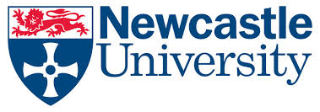Governance and elections in North East Africa
Professor Justin Willis, History, Durham University
Professor Willis’ research into the relationship between central colonial state power and traditional local conceptions of authority and identity in Sudan and Kenya is helping diplomatic staff, policymakers, and aid workers in the international community to understand the historical context for present-day conflict in the region, and to shape their policies accordingly.
The research
North East Africa, a region which includes Kenya, Ethiopia, Chad, Sudan and South Sudan, has seen persistent conflict, and externally-funded interventions have increasingly focused on improvements in governance as the key to achieving long-term regional stability and economic development.
Professor Willis has shown that it is crucial such interventions are underpinned by understanding of the complex histories of governance in the region, and the often uncomfortable interaction between the multiple forms of legitimacy, particularly at a local level, that have produced present-day structures and cultures of authority. His research on Sudan and Kenya is concerned with the nature of authority at a local level, and the ways in which the ambitions of the colonial and post-colonial central state have become entangled with local ideas about legitimacy and identity. Professor Willis's research shows how practices and languages of power can be appropriated and reinterpreted locally, making the consequences of externally-conceived interventions unpredictable. An emphasis on the local, and on the importance of understanding the multiple forms of agency through which state projects are mediated, has been a key element of his engagement with policymakers, fieldworkers, and other research-users.
Policy impact and engagement
Professor Willis’ expertise means he has been able to provide valuable advice and training to a wide range of policymakers, diplomatic staff, aid workers, and defence personnel from national and international agencies working in the region.

Image copyright Durham University
He has been involved with the Rift Valley Institute since 2004, first as a Fellow, and since 2010 as a trustee/director. The RVI is an influential non-profit organisation which operates in Sudan and South Sudan (formerly the single Republic of Sudan), the Horn of Africa, East Africa, the Great Lakes and the Democratic Republic of the Congo, and which aims to bring local knowledge to bear on political and economic development. In 2010, the RVI published The Sudan Handbook, which Professor Willis co-edited and contributed to, a guide that has been enormously influential with policymakers, academics, and fieldworkers. Professor Willis also helped develop and teach the RVI’s Sudan Course (now called the Sudan and South Sudan Course), an intensive one-week training course designed for aid workers, peacekeepers, researchers, business executives and diplomats living and working in the region. The course has been attended by ambassadors and foreign affairs and defence personnel from the UK, Norway, Australia, Switzerland, Canada and the Netherlands, by heads of UN missions, and by UN country representatives. In 2008, he was Principal Investigator on an RVI project on electoral history in Sudan, which was funded by the UK Department for International Development. The results of this project were widely disseminated, and informed the support given by the international community — which ranged from technical advice, to logistical support, to the provision of voter education material — for the elections in Sudan, eventually held in 2010.
Since 2002, Professor Willis has also been involved in briefing Foreign and Commonwealth Office staff taking up posts in eastern Africa, including the High Commissioner to Nairobi, the Ambassador to South Sudan, and a new political officer for the Nairobi High Commission. He also briefs officials in London and Nairobi on specific issues; for example the Sudan border conflict in 2012, and coastal secessionism in Kenya in 2012.



